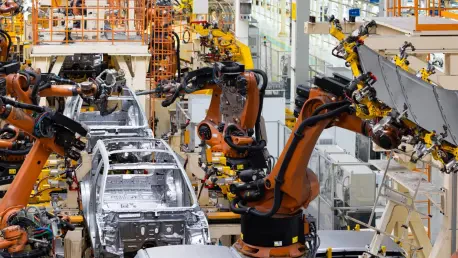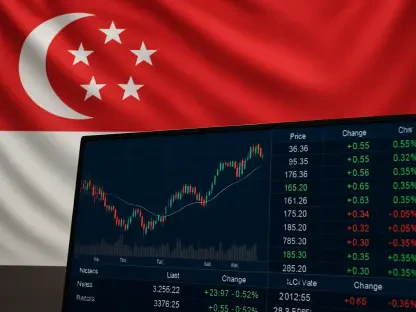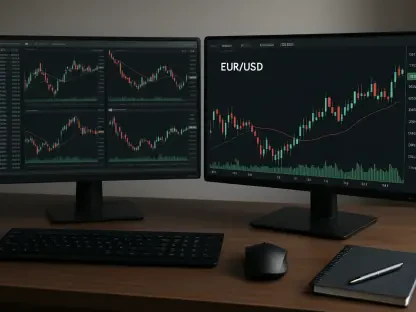As the automobile industry continues to face the complexities brought about by global tariffs, businesses are discovering that these economic challenges can be transformed into sales opportunities. The imposition of tariffs on imported vehicles and parts presents both obstacles and prospects, prompting industry players to reexamine their strategies. Tariffs, often perceived as hindrances, can instead act as a catalyst for innovation in marketing, supply chain management, and consumer engagement. By strategically addressing these challenges, automotive companies can not only survive in a competitive market but thrive by turning adversity into advantage.
Economic Impact of Tariffs
Understanding the Consumer Reaction
The recent 25% tariffs on imported vehicles and automotive components have created ripples across the industry, influencing consumer behavior and market dynamics. In response to such tariffs, consumer habits often shift, as people seek to secure purchases before anticipated price increases take effect. This immediate reaction to economic uncertainty provides a window of opportunity for automotive companies. Dealerships can leverage this urgency by crafting marketing campaigns that emphasize the benefits of acting quickly before prices rise—a tactic that resonates with consumers seeking to optimize their spending in uncertain times.
Such campaigns are not merely about creating panic but about offering genuine value and assurance. By presenting a transparent narrative about current pricing stability and potential future hikes, dealerships can encourage customers to make purchasing decisions based on informed insights. The key is to balance urgency with clarity, ensuring that marketing efforts do not exploit fear but rather educate consumers on the changing landscape. This strategy can solidify trust and foster long-term relationships, making customers feel involved in decision-making processes despite the complexities imposed by tariffs.
Supply Chain Adaptations
Beyond marketing strategies, the impact of tariffs extends deep into supply chains, necessitating innovative solutions to manage disruptions and maintain product availability. Tariffs raise the cost of imported parts, and businesses must reassess sourcing strategies to minimize their effects. By diversifying supply chains and exploring alternative suppliers, automotive companies can adapt to challenges. While this might entail higher initial costs, over time, a diversified supply chain can help weather future tariff changes by providing a buffer against single-source risks.
Additionally, companies can invest in strengthening domestic production capabilities. Such investments can offset tariff impacts and appeal to consumers who prioritize products manufactured locally. This not only reduces dependency on imports but also creates an opportunity for businesses to differentiate themselves by emphasizing domestic craftsmanship and quality. By communicating these efforts to consumers, businesses can align their values with those of the customers, thereby enhancing brand loyalty and trust, which are critical in a market sensitive to economic fluctuations.
Strategic Marketing and Sales Initiatives
Crafting Compelling Campaigns
In an environment where tariffs represent a significant variable, marketing strategies must be agile and responsive to economic shifts. By embracing the narrative that tariffs create urgency, dealerships can craft compelling campaigns that reflect real-world developments. For instance, framing sales promotions within the context of tariffs—such as “Tariff Countdown Sales”—creates a time-sensitive appeal that encourages prompt consumer action. This strategy not only boosts current sales but also helps mitigate potential inventory backlog, ensuring that businesses remain nimble in adjusting to new market realities.
These campaigns can be further augmented by offering exclusive incentives during promotional periods. For example, businesses may provide additional savings or favorable financing options, making the prospect of immediate purchase more attractive to consumers. Such offers enhance the perceived value offering to customers, who feel encouraged to act before promotional windows close. Importantly, consistent messaging across platforms—whether via email campaigns, social media, or radio—uniquely positions each dealership as a proactive and customer-centric entity in a challenging economic environment.
Transparency and Consumer Trust
Trust and transparency form the cornerstone of any effective marketing strategy, particularly during periods of economic uncertainty. Consumers value clear and honest communication, especially when external factors such as tariffs affect pricing and availability. By openly discussing how tariffs impact product costs and inventory, businesses can position themselves as trusted advisors rather than mere sellers. This approach requires significant training for sales teams, who become valuable sources of information and guidance for customers navigating the complexities of buying in a tariff-influenced market.
To build this rapport, businesses can implement educational initiatives that inform both sales staff and customers about tariff implications. Sales teams can engage customers by outlining potential future scenarios and providing guidance on the best course of action. By becoming knowledgeable advisors, sales personnel reinforce the dealership’s credibility, encouraging customers to rely on them for informed purchasing advice. This transparency in communication enhances customer confidence, fostering loyalty and driving repeat business despite market challenges.
Long-Term Industry Adjustments
Proactive Industry Shifts
Adapting to tariff changes requires a forward-thinking mindset from automotive companies willing to embrace transformation rather than viewing tariffs solely as disruptions. By proactively monitoring policy developments and assessing potential ripple effects across the global supply chain, businesses can take strategic steps to mitigate risks while leveraging opportunities for growth. This may involve investments in technology and innovation, enabling companies to streamline operations and improve efficiency despite external economic pressures.
Moreover, collaborating with industry peers and participating in advocacy efforts can provide a collective voice in shaping future trade policies. By presenting a united front, the industry can influence dialogues around tariffs, drawing attention to the broader impact on employment and economic sustainability. Building relationships with policymakers offers a platform for dialogue that considers the unique challenges and opportunities within the automotive sector, transcending traditional competitive barriers for a more cohesive approach.
Innovating for Sustainability
Tariffs also present an impetus for companies to innovate, shifting focus toward sustainable practices that reduce dependency on volatile international markets. By investing in research and development, businesses can explore alternative materials and production methods that align with environmental goals while reducing exposure to tariff-induced costs. Such initiatives not only contribute to long-term industry resilience but also resonate with consumers increasingly concerned with environmental impact, further strengthening brand loyalty.
Sustainability-driven innovation extends beyond product development into marketing strategies. Companies can embed their commitment to environmental responsibility within their brand narrative, appealing to eco-conscious consumers by emphasizing how tariff-related changes have prompted meaningful shifts toward sustainability. By aligning business objectives with consumer values, automotive companies position themselves as leaders not only in product offerings but also in responsible corporate citizenship, paving the way for sustained success in the face of ongoing challenges.
From Obstacles to Opportunities
As the automotive industry navigates the complexities of global tariffs, businesses are finding ways to turn these economic challenges into sales opportunities. Tariffs on imported vehicles and parts bring both hurdles and potential benefits, encouraging industry leaders to rethink their strategies. While often viewed as barriers, tariffs can actually spur innovation in areas such as marketing, supply chain management, and consumer engagement. By addressing these challenges strategically, automotive companies are not just aiming to survive in a fiercely competitive market but are aspiring to thrive by transforming adversity into advantage. These tariffs prompt a deeper examination of cost structures and efficiency, propelling companies to explore domestic production and new market strategies. Moreover, the need to mitigate tariff impacts is driving creativity in consumer outreach, fostering engagement and brand loyalty. In this complex landscape, the ability to adapt and innovate becomes crucial, turning potential drawbacks into stepping stones for future success.









